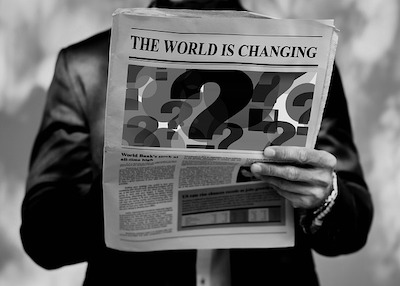Current events are forcing many to ask this question
[PDF version]
Current events are forcing many to reevaluate many things. Where we live, how we work, and what’s no longer necessary. Much of what we’ve taken for granted has either fundamentally changed or ceases to exist. On the surface, such questions lead one to conclude these are terrifying times. Yes while unsettling they in fact present an opportunity.
 Many, like myself, have family members living in expensive metropolitan areas who now find working from home is their ‘new normal’. Naturally, they are asking if the high cost of living and traffic is worthwhile since they can essentially work from anywhere. Perhaps a more picturesque location and a better quality of life may motivate them to relocate.
Many, like myself, have family members living in expensive metropolitan areas who now find working from home is their ‘new normal’. Naturally, they are asking if the high cost of living and traffic is worthwhile since they can essentially work from anywhere. Perhaps a more picturesque location and a better quality of life may motivate them to relocate.
Unlike any other time we have the opportunity to face the most primary of questions- “is this necessary?”. While pruning away the excesses of daily life may be unpleasant at the moment it allows us to redirect our limited energies to more fruitful endeavors. Personally, this is not a process I naturally gravitate toward. Yet when faced with such decisions I often reflect on the words of the philosopher-king and Roman Emperor Marcus Aurelius.

“Because most of what we say and do is not essential. If you can eliminate it, you’ll have more time and more tranquility. Ask yourself at every moment, is this necessary.”
– Marcus Aurelius, Meditations.
Our days often run on autopilot, and sometimes our business does as well. Running on pure instinct is the surest way to stagnation and burn-out.
With that in mind here are some general questions that can be applied to your personal or professional life, and of course more business-specific questions for reverse mortgage professionals.
|
General & Personal |
Professional |
|
Why am I doing this now? |
How much time do I invest in prospecting? |
|
Is this the best use of my time? |
Am I too dependent on refinance transactions? |
|
What’s the immediate benefit? |
When’s the last time I sat down with another professional financial advisor or CPA? |
|
What’s the long-term benefit? |
Do those in my community know what I do? |
|
Does this move me toward my goals? |
Should I work from home indefinitely? |
|
What can’t I do if I do this instead? |
Have I ever spoke on my local radio or television news stations? |
|
What does life require of me? |
Am I connected to other reverse professionals? |
|
What gets the lion’s share of my energy? |
How do I spend most of my workday? |
|
Is this necessary or essential? |
Will this help me grow my business & income? |
These questions will force you to face three things: (1) your perception of what’s happening, (2) the actions you are committed to taking, and (3) your will to consistently make a positive change over time.
So ask away. Turn off the daily autopilot and begin to scrutinize just what it is you’re doing and why.







3 Comments
This is incredible Shannon. I have been focusing on this very topic for the last few months and it is nice to know that I am not alone in my thinking.
Less is more.
How does this action affect my spiritual life, my children, my health, and my business?
Keep it up!
Thank you Tom. I truly appreciate that. Between studying stoicism, the scriptures, and philosophy and general I’ve been prompted to ask more questions.
This was once called accountability. As a partner in a CPA firm, everyday I had to account to my timesheet. The best weeks were those I took control over my work week and my worst, when I allowed my work week to control me. When I came into the reverse mortgage industry, time sheets became a thing of the past but so did accountability; it was not that I did not work but it was harder to determine how I spent my time during the work day..
This is a great reminder to start redeeming the time by tracking and planning it. One of the things that all people share in common is the number of minutes we all share equally each day. There is no discrimination in how much time we all have each day. Learning how to gain the most out of each day is a life-long training that few master especially those who do no accountability for their time.
Yet from another perspective, merely doing an accounting without a goal to improve the use of time is vain. In a large degree, it is that Shannon is presenting.